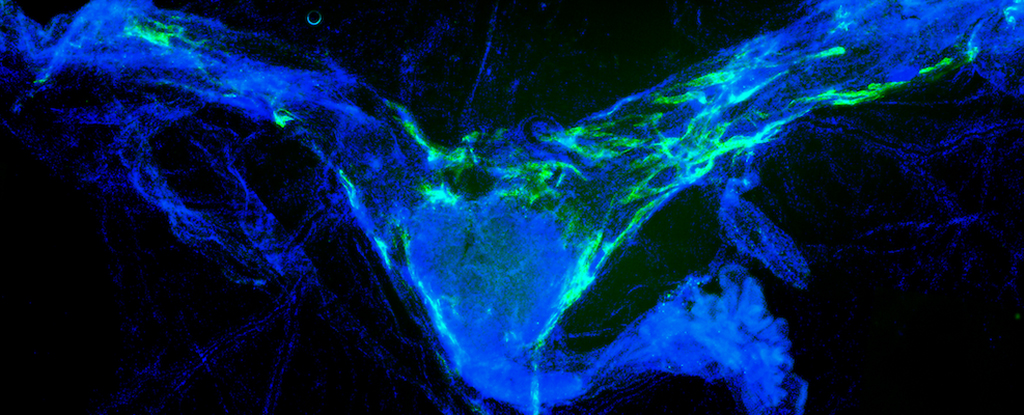Clearing Brain Waste: A Breakthrough in Memory Restoration for Aging Minds
As we age, cognitive decline becomes an increasing concern, affecting memory, focus, and overall brain function. Recent research has uncovered a fascinating discovery: clearing accumulated waste from the brain can dramatically improve memory in aging mice. This breakthrough, highlighted by ScienceAlert, suggests that enhancing the brain’s natural cleaning mechanisms could hold the key to combating age-related cognitive decline in humans.

Caption: A microscopic view of brain cells, illustrating the buildup of waste proteins that contribute to cognitive decline in aging.
The Brain’s Waste Removal System
The brain has its own built-in cleaning crew—the glymphatic system. This network of vessels works similarly to the lymphatic system but is specialized for the brain, flushing out toxic proteins and metabolic waste during sleep. Among the most harmful waste products is beta-amyloid, a protein linked to Alzheimer’s disease. In young, healthy brains, this system operates efficiently. However, as we age, the glymphatic system slows down, allowing waste to accumulate. This buildup is associated with memory loss, slower cognitive processing, and neurodegenerative diseases.
How the Study Unfolded
Researchers conducted experiments on aging mice, focusing on improving the efficiency of their glymphatic systems. By stimulating the brain’s waste-clearing processes, scientists observed: - Improved memory retention in older mice - Reduction in beta-amyloid plaques - Enhanced cognitive function comparable to younger mice These findings suggest that restoring the brain’s waste removal capabilities could reverse some effects of aging on memory.
Potential Applications for Human Brain Health
While the study was conducted on mice, the implications for human health are profound. If similar methods can be applied to humans, we may see advancements in: 1. Alzheimer’s Prevention – Clearing beta-amyloid early could delay or prevent cognitive decline. 2. Sleep Optimization – Since the glymphatic system is most active during deep sleep, improving sleep quality may enhance waste removal. 3. Therapeutic Interventions – Future drugs or therapies could target the glymphatic system to boost its efficiency.
The Role of Sleep in Brain Detox
One of the most actionable takeaways from this research is the critical role of sleep in brain health. Studies show that poor sleep disrupts the glymphatic system, leading to faster cognitive decline. Practical steps to support brain detoxification: - Prioritize 7-9 hours of quality sleep per night - Maintain a consistent sleep schedule - Reduce blue light exposure before bedtime
Challenges and Future Research
While the results are promising, translating these findings to humans presents challenges: - Differences in brain structure between mice and humans - Long-term safety of artificially stimulating waste clearance - Identifying the best methods (drugs, lifestyle changes, or medical devices) Future studies will need to explore whether techniques like ultrasound stimulation, specialized diets, or pharmacological treatments can safely enhance the glymphatic system in humans.
Conclusion: A New Frontier in Cognitive Longevity
The discovery that clearing brain waste can restore memory in aging mice opens exciting possibilities for combating cognitive decline. By understanding and supporting the glymphatic system, we may unlock new ways to preserve brain health well into old age. For now, prioritizing sleep, staying physically active, and maintaining a brain-healthy diet remain the best strategies to support natural detoxification. As research progresses, we may soon see groundbreaking therapies that keep our minds sharp for decades longer. Would you like to see more research on brain detoxification? Share your thoughts in the comments below!